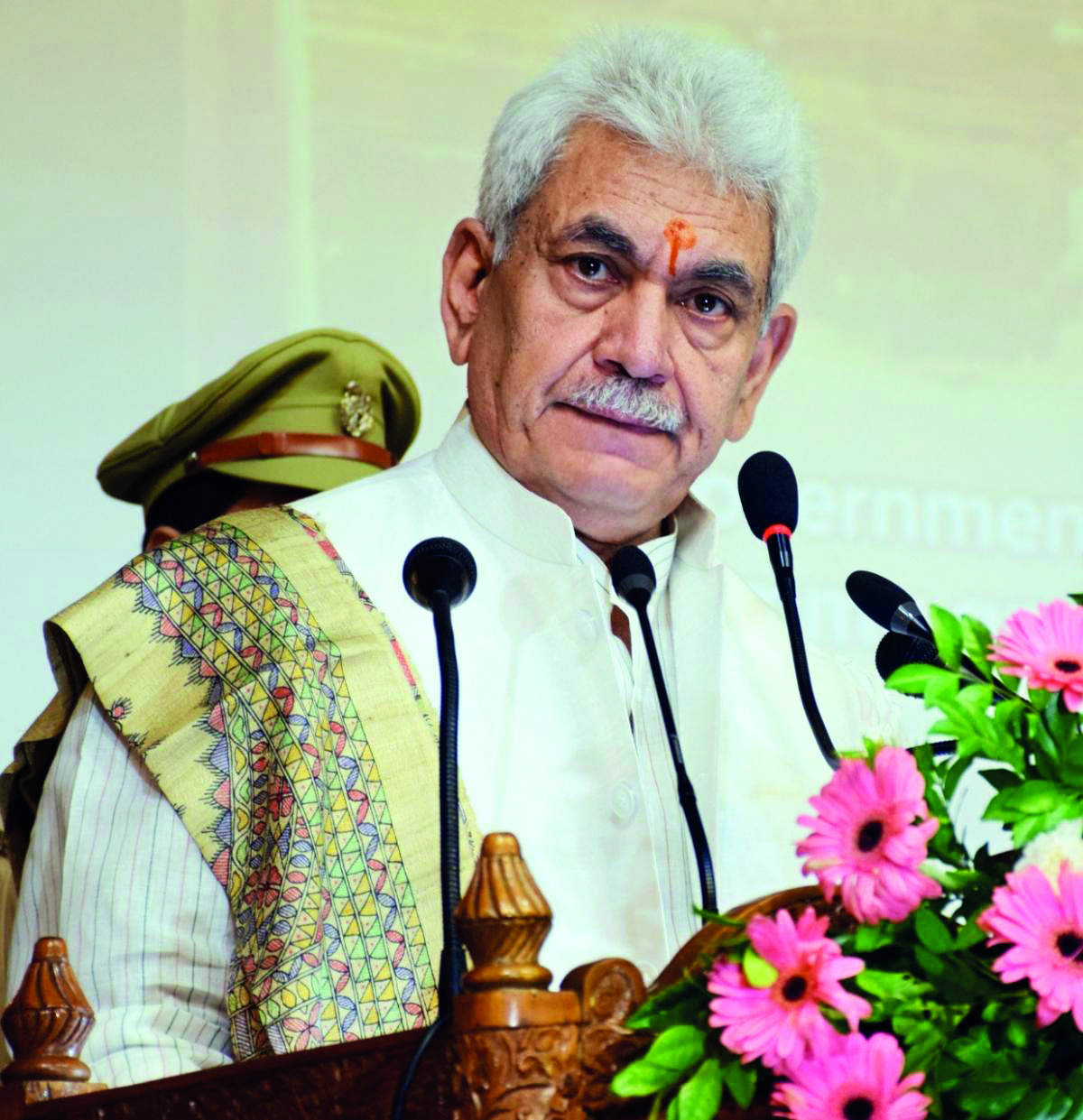J&K peaceful, sees remarkable progress post-Article 370: Sinha
L-G Manoj Sinha says stone-pelting ended, normalcy restored in education and business, tourist numbers surged

It has been four and a half years since the Modi government abrogated Article 370 in Jammu and Kashmir and three years since Lieutenant Governor Manoj Sinha was picked up to head the Union Territory. He spoke to Simontini Bhattacharjee in Srinagar on Monday on how the administration has carved out a path to take the border Union Territory on the road to people-oriented development, ushering in economic prosperity and effectively controlling terrorism. Here are excerpts
Q: How would you describe the significant changes witnessed in Jammu and Kashmir post the abrogation of Article 370? Evaluate the perceived benefits of revoking this Article.
Ans: The abrogation of Article 370 in Jammu and Kashmir has significantly benefited around 65 lakh women, particularly addressing issues like deprivation of fundamental rights upon marriage outside the state. Post-August 5, 2019, positive changes include SC community reservation in Panchayats, rights for Pakistan-occupied Jammu and Kashmir (POAJK) residents, and empowerment for West Pakistan refugees. Reforms extend to representation for Kashmiri Pandits, special rights for Schedule Tribes, and recognition for the Pahari community.
Under Prime Minister Narendra Modi’s governance since 2019, approximately 1.25 crore people have been empowered. Noteworthy improvements include the end of stone-pelting, normalcy in education, business, and daily life, and a surge in tourist numbers from 1 lakh 68,000 to 2 crore 12 lakh. Over 52,000 projects have been completed, attracting around Rs 90,000 crore in new industrial investments, fostering economic growth.
Holistic agriculture plans aim to transform the lives of 13 to 14 lakh families, offering an increased additional budget. With 70 per cent of the population dependent on agriculture, this initiative holds significant promise. Terrorism incidents have seen a notable decline, ensuring the safety of civilians and security personnel. Overall, the region has experienced ten-fold development, reflecting positive changes in various sectors.
Q: The recent passage of three bills adding seven tribal communities to the ST list has potential implications for political demography. How might this impact the election in the region?
Ans: Elections do not concern me. PM Modi’s government avoids vote bank politics. Union Home Minister Amit Shah, in a Parliament speech, clarified in the Parliament also that ST communities, people will be fully facilitated with their fundamental rights. The ST Commission submitted a report to the Tribal Affairs Minister based on recommendations, emphasizing a commitment beyond electoral gains.
Q: The recent amendments giving the Election Commission control over Panchayat and municipality elections, along with the removal of the state election commissioner, are expected to change the electoral process in the UT. How do you anticipate these changes?
Ans: No confusion here. Across the country, the process remains consistent. Panchayat elections used to involve the state election commissioner nationwide. However, a positive shift has been made with the local body elections.
Q: Delimitation and the update of electoral rolls have occurred in Jammu and Kashmir. Is it a suitable time to conduct elections now? Additionally, when might the region regain statehood?
Ans: Both Prime Minister Narendra Modi and Union Home Minister Amit Shah, in their addresses to Parliament, highlighted the sequence of delimitation first, election second, and statehood at the appropriate time. Delimitation was deemed necessary, resulting in an increase of 7 Assembly seats. The Election Commission of India formed the Delimitation Commission, supervised by Justice Ranjana Desai, who visited Jammu and Kashmir. The commission’s report led to the delimitation process, altering seat boundaries. Consequently, the upcoming 2024 elections will adhere to new norms, accommodating numerous new voters. Following the Supreme Court’s decision, the Assembly election is slated to take place by September of this year.
Q: Given its border status, Jammu and Kashmir grapple with security challenges and terrorism. What measures are in place to counter cross-border terrorism, and what specific threats does the region face?
Ans: Our army is stationed along the border, and in various locations in Jammu, Border Security Force personnel are deployed to prevent cross-border infiltrations.
Q: The region has witnessed targeted killings of civilians, police personnel, and migrant labourers. Do these incidents signify a new phase of terrorism?
Ans: I do not believe this represents a new face of terrorism. While unfortunate incidents and casualties have occurred recently, the Jammu and Kashmir police, along with forces, are actively responding. They have implemented a comprehensive 360-degree security plan to ensure safety.
Q: Is there evidence of outsiders acquiring non-farmland in Jammu and Kashmir? Concerns are raised about potential demographic shifts; how are these concerns being addressed?
Ans: This allegation is baseless and driven by political interests. Regarding agricultural land, the laws are comparable to those in Uttarakhand and Himachal Pradesh. Non-domiciled individuals in Jammu and Kashmir cannot acquire agricultural land. However, for industries, we are facilitating the provision of land.
Q: Prime Minister Modi is set to visit the valley for the first time since the abrogation of Article 370. What impact do you foresee this visit will have?
Ans: His visit is not solely linked to the abrogation of Article 370. Given the vastness of the country, ministers routinely visit various regions, including Srinagar in the valley. This visit reflects his genuine interest and care for the valley, generating excitement among people who eagerly anticipate participating in his rally.



